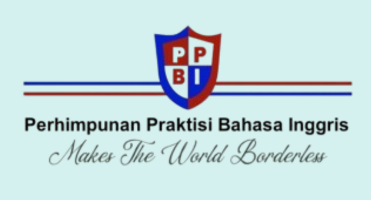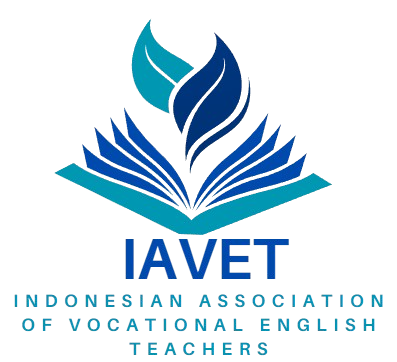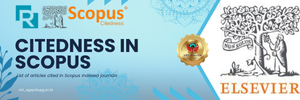An Investigation of Sociometric Status on Students’ Achievement in Indonesian EFL Speaking Class
DOI:
https://doi.org/10.31963/rial.v2i1.4654Keywords:
Sociometric Status, Students’ Achievement, Speaking Class, EFL ClassroomAbstract
The relationship among peers that occur in the teaching and learning process becomes essential to be investigated where it might influence students’ academic achievement. In depth, Sociometric Status is an indicator to categorize the relationship of individual among groups of friends whether he or she is liked or disliked by his or her peers. The purpose of this study is to investigate sociometric status on students’ achievement especially in the speaking skill. Thirty students at the twelfth grade of social science class are study consists of observation checklist, rating-scale measurement, and students speaking score. Observation checklist is used to observe students’ behaviors with their peers during the teaching process and rating scale measurement is given to students before conducted observation. In addition, students speaking score is collected through the result of students speaking test after doing observation. The result of this study indicates positive and negative influence of the sociometric status on the students’ achievement. This study is hoped to give beneficial contribution about how the sociometric status of the students affects their achievement in EFL speaking class. Therefore, teacher would be able to do appropriate treatment to help students overcome their psychological problems and also to make the good atmosphere among the students in the speaking class.References
Asher R, S., & Dodge, K., A. (1986). Identifying Children Who Are Rejected by Their Peers. American Psychological Association, 22(4), 444–449. https://doi.org/0O12-1649/B6/SO0.75
Bahar, H. H. (2010). The effects of gender, perceived social support and sociometric status on academic success. Procedia - Social and Behavioral Sciences, 2(2), 3801–3805. https://doi.org/10.1016/j.sbspro.2010.03.593
Brown, Douglas, 1980. Principles of Language Learning and Teaching. Englewood CLIFFS. New Jersey. Particehall Inc.
Brown, Douglas, 1994. Teaching by Principles: An Interactive Approach Language Pedagogy. San Fransisco: State University.
Fasil Demise. 1992. Communicative Strategies Employed by Senior High School Students in Oral Production of English. (MA Thesis). Addis Ababa University.
Finch, C. C. (1998). Aggression, Relational Aggression, Sociometric Status and the Quality and Authenticity of Children’s Friendships. Honors Projects, 1–53.
Gifford-Smith, M., E., & Brownell, C., A. (2003). Childhood peer relationships: social acceptance, friendships, and peer networks. Elsevier Science, 41, 235–284. https://doi.org/10.1016/S0022-4405(03)00048-7
Heaton, J.B. 1991. Writing English Language Test. New York: Longman Inc Heaton
Heigham, J. and Croker R.A. (eds), (2009). Qualitative Research in Applied Linguistics. Basingtoke, England: Palgrave Macmillan.
Jenenew Bekele. 2006. Teachers’ and Students’ Role Implementation in EFL Speaking Classroom. (MA Thesis). Addis Ababa University.
Malik, S. R., & Hamied, F. A. (2016). Research methods: A guide for first time reseal
McDougall, W. (2010). Introduction to social psychology. Social Psychology, 2–34.
Oberle, E., Reich Schonert, K., A., & Thomson, K., C. (2010). Understanding the Link Between Social and Emotional Well-Being and Peer Relations in Early Adolescence: Gender-Specific Predictors of Peer Acceptance. Springer Science, 39, 1330–1342. https://doi.org/10.1007/s10964-009-9486-9
Rimkiene, V.J & Kardelis, K. (2005). Peer reputation of adolescents: sociometric status differences. Lithuanian Academy of Physical Education, 41(6), 522–528.
Taye Gebrmariam. 2008. A Comparative Study of Televised and NonTelevised Speaking Skills Teaching Techniques. (MA Thesis). Addis Ababa University
Tesfaye Alemu. 2007. Communication Strategies Utilized by Omo TII Teachers in Oral Production of English. (MA Thesis). Addis Ababa University.
Tsegaye Tafere. 1995. Speaking Strategies Employed by First Year Students at Kotebe College of Teachers Education. (MA Thesis). Addis Ababa University.
Zakriski, A. L., & Prinstein, M. J. (2001). Sociometric status of child inpatients in clinical and normative peer groups: Is peer status in a clinical setting a useful measure of adjustment? Journal of Applied Developmental Psychology, 22(2), 157–173. https://doi.org/10.1016/S0193-3973(01)00074-0
Downloads
Published
Issue
Section
License
Copyright (c) 2024 Research and Innovation in Applied Linguistics [RIAL]

This work is licensed under a Creative Commons Attribution-ShareAlike 4.0 International License.
Authors who publish with this journal agree to the following terms:
Authors who submit article to this journal, agree to grant the copyright to Research and Innovation in Applied Linguistics (RIAL) under a Creative Commons Attribution License: Creative Commons Attribution-ShareAlike 4.0 International License.
![]()
For collaborative works, authors should ensure that they have secured the necessary permissions from co-authors to submit the manuscript and grant the rights outlined in this policy.
Archiving and Access:
RIAL upholds an open access policy, ensuring that articles are freely accessible to a global audience upon publication. Authors' work will be archived electronically, facilitating its long-term availability and visibility.









.png)


